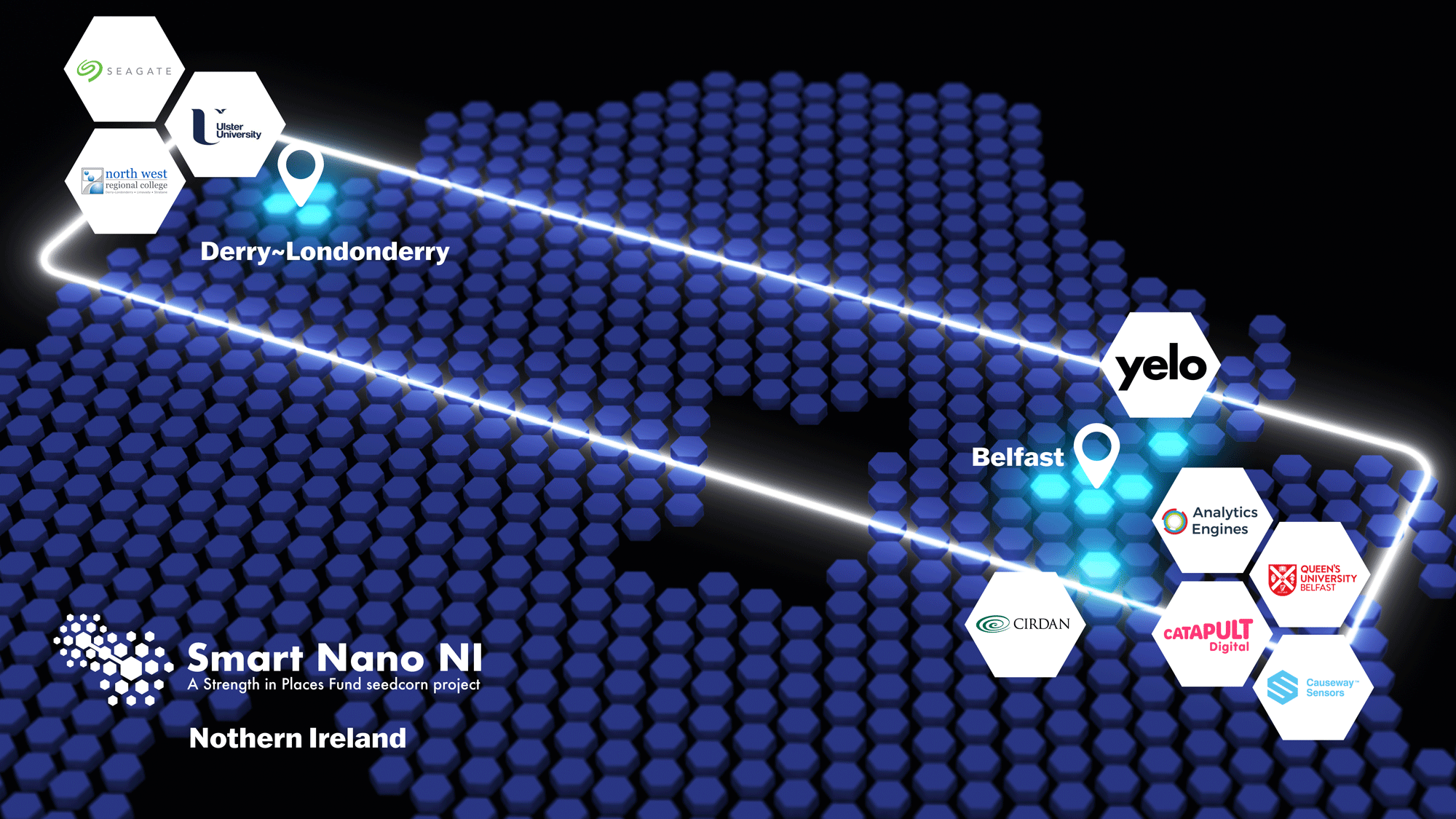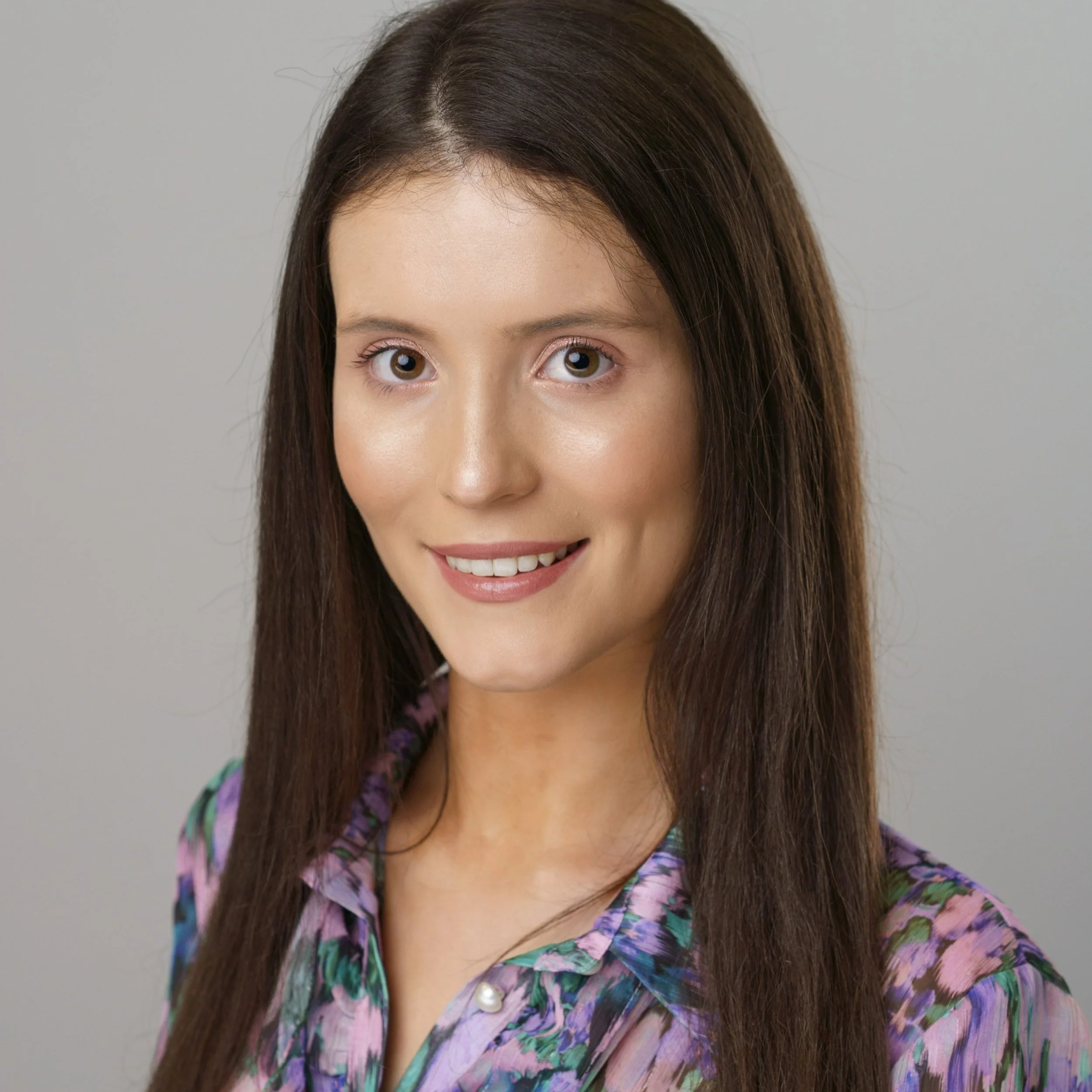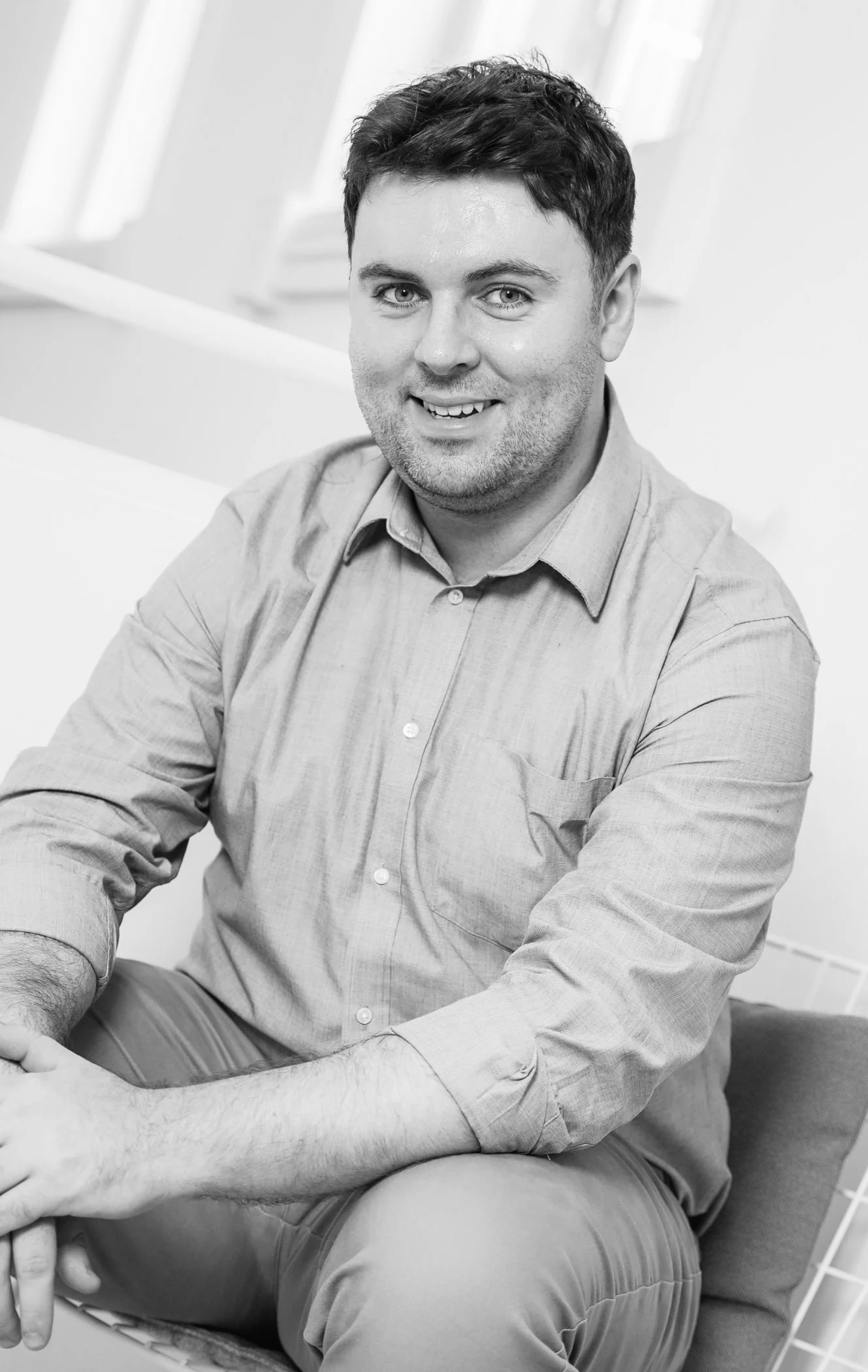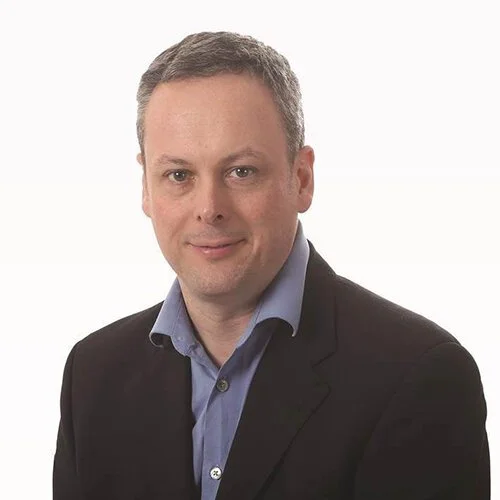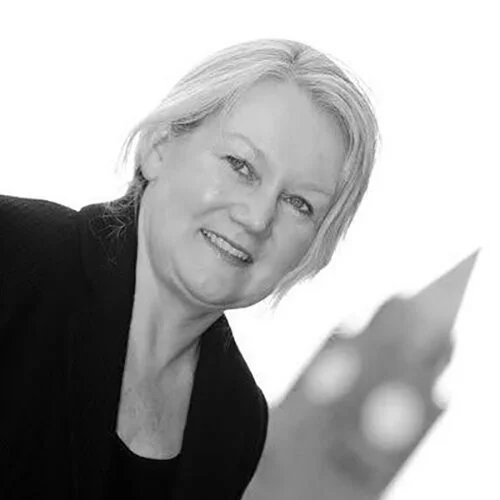Consortium
Members
Please find below a list of the consortium members and their primary contacts
Analytics Engines
Analytics Engines enables organisations to easily and quickly adopt Data Analytics as a core part of their business and accelerate conversion of data into valuable business insights. Trusted by national institutions including RTÉ, Innovate UK and The National Gallery London, Analytics Engines' data analytics and AI solutions reduce complexity, optimise performance and build intelligence. The team possesses market-leading capability across AI&ML, data integration, computer vision technology, data science, data management, graph and text analytics, advanced analytics and data visualisations. Analytics Engines has been named by Tech Nation as among the UK’s most innovative AI companies to watch in 2020. The company is also the creator of Big Data Belfast - one of the leading data and technology events in the region.
Dr Scott Fischaber
Lead consortium contact
Dr Scott Fischaber is co-founder and COO of Analytics Engines with over 10 years’ experience in running the company’s operations. Originally from Oklahoma, he moved to Belfast from Colorado, where he worked for the world’s largest programmable logic device company, and spun out Analytics Engines from QUB after completing his PhD in Electrical and Electronic Engineering.
Dr Aislinn Rice
Lead consortium contact
Dr Aislinn Rice is Managing Director of Analytics Engines. A graduate of the Executive Leadership Program at Harvard Business School, she is an IoD Chartered Director (CDir) and was awarded the IoD NI Director of the Year Award (Large Company category) in 2011. Aislinn recently served as non-executive director on the board of QUBIS, the organisation which commercialises Queen's University research and development through the formation of spin-out businesses. She holds a PhD in Chemistry from Queen’s University Belfast.
North West Regional College
North West Regional College has 5 main college campuses located in Derry-Londonderry, Limavady and Strabane, and offers more than 500 courses aimed at supporting the learning and career ambitions of school leavers, adult returners, working professionals and the unemployed. The College also has a National award-winning Business Support Centre which supports the re-skilling, up-skilling, R&D, innovation requirements of numerous companies and entrepreneurs across the region. NWRC’s Business Support Centre provides a range of innovation and skills training programmes to support the requirements of companies across the region. The College makes a significant contribution to the economy both as an employer, a provider of education and training, and as a direct support to industry through skills mentoring and innovation.
Fergal Tuffy
Lead consortium contact
Dr Fergal Tuffy is Technology Innovation Manager at the NWRC and manages the NWRC’s Business Support Centre. Fergal leads the NWRC’s policies, programmes and projects to ensure delivery of the College’s priorities for economic development, employer engagement, business skills and innovation.
Fergal spearheads a team of technical consultants in industry focussed projects and manages the engagement with business, locally, regionally and internationally. Leading of externally funded projects which contribute to the income generation / targets for the College, this involves the College’s delivery of Technology Transfer Programmes such as KTP, Fusion, Innovation Vouchers, and the Employment Support Programme as well as industry Skills programmes such as the Department for the Economy’s Skills Focus, Higher Level Apprenticeships (HLA) and Assured Skills.
Fergal oversees the NWRC’s Technology Innovation Centres of Foodovation (Innovation in Food and Drink) and Product Design Centre (PDC) and is planning further developments in industry 4.0 and mixed reality (XR, a mesh of augmented and virtual reality).
The NWRC BSC won the Times Educational Supplement (TES) 2020 award for employer engagement in recognition for supporting 1,300 companies in the past 4 years with bespoke innovation, upskilling and training.
Conor McGurgan
Lead consortium contact
Causeway Sensors
Causeway Sensors is a spin-out company from Queen’s University Belfast that has developed a patented nano-sensor platform that condenses lab-scale processes for quantifying biomanufacturing yield into a chip that can plug directly into a bioreactor and measure critical process data in real-time. Our mission is to redefine quality control in biotherapeutic manufacturing, driven by a purpose to make medicines affordable for everyone in the world. The company is addressing two of the biggest challenges in biomanufacturing: unoptimised cell-line productivity and failed batches. Our first product focuses on real-time IgG quantification, which is critical to developing and manufacturing monoclonal antibody-based therapeutics.
Dr Antony Murphy
Lead consortium contact
Antony is the hands-on CEO of Causeway Sensors, with plenty of laboratory experience to back his management style.
A graduate of Queen’s University Belfast, Antony obtained his PhD while developing the nanotechnology sensor platform that forms the basis of Causeway’s technology.
Antony has worked closely with Bob Pollard, the company’s founder and executive chairman, to raise over £3.3M in venture capital investment.
David Kane
Lead communications contact
Cirdan
Cirdan is a leading provider of pathology informatics and imaging solutions that support and speed up patient diagnosis. Headquartered in the Lisburn, Northern Ireland, with international offices in Canada and Australia, Cirdan is recognised as one of the leading suppliers of laboratory information systems (LIS) worldwide. Cirdan’s products include ULTRA, a LIS that supports and streamlines the operations of a clinical laboratory, the CoreLite and Solas x-ray systems which expedite breast cancer diagnosis and PathLite+ Cirdan’s latest digital macro imaging system for use within the Pathology Laboratory. Cirdan also offers Tutor, a digital pathology education platform, and software solutions that support artificial intelligence and machine learning in digital pathology technologies.
Stephen Dunniece
Lead consortium contact
Stephen Dunniece is CO for Imaging where he helps lead product design and development with the aim of introducing new products and technologies that truly meet the increasing needs of today’s healthcare service providers.
Before helping co-found Cirdan, Stephen worked at QUB, Lucas and then Andor Technology where as a senior R+D engineer he helped deliver of several generations of product.
Beyond upcoming new product introductions which improve and extend Cirdan’s offerings in visible and x-ray imaging, Stephen looks forward to the next generation of products enabled by the Smart Nano project which will rapidly provide information directly related to the microscopic pathological state of specimens which will greatly accelerate and aid outcomes in many areas of disease.
Rebecca Fitton
Lead communications contact
Digital Catapult
Digital Catapult Northern Ireland connects industry and academia to build innovative partnerships, helping organisations of all sizes to work smarter by originating and adopting advanced digital technologies.
Working closely with Innovate UK, Belfast Regional City Deal (BRCD), InvestNI, and the Department for the Economy, Digital Catapult Northern Ireland introduces businesses to new possibilities by sharing use cases that demonstrate how emerging technologies are being deployed in industry.
We’re proud to be part of the Catapult Network. Supporting businesses in transforming great ideas into valuable products and services, we are a network of world-leading technology and innovation centres established by Innovate UK.
David Gourley
Project Manager
David Gourley is Project Manager at Digital Catapult Northern Ireland, managing the Smart Nano NI accelerator programmes and 5G testbed and playing a key role in engaging stakeholders across the consortium.
David holds a BA in History and an MSc in Professional Software Development from Ulster University.
Before Digital Catapult, he worked in Fintech for large payments and banking organizations, starting as a software developer before moving into project management.
David Phelan
Innovation Delivery Manager
David Phelan is an Innovation Delivery Manager at Digital Catapult Northern Ireland, managing smart manufacturing accelerator programs for Smart Nano NI and helping startups and SMEs in photonics and advanced wireless.
His background includes roles in bid writing, marketing, business development, and project management. Previously, he led business development and project management at Belfast Metropolitan College, working with startups, SMEs, and FDI companies on innovation and skills projects in various tech areas.
Most recently, David was seconded into the Belfast Region City Deal (BRCD) Employability and Skills pillar - consulting with local Councils, Universities, Colleges and industry partners to assess their future skills demands linked to the £1bn of investment in digital and innovation infrastructure over the next 10 years in the region.
Queen’s University Belfast
Queen’s University Belfast is a member of the Russell Group UK research-intensive universities, providing world-class education underpinned by world-class research. Founded as Queen’s College in 1845, it became a university in its own right in 1908. Today, it is an international centre of research and education, with a student-centered ethos. With more than 24,000 students and 4,200 staff, it is a dynamic and diverse institution, a magnet for inward investment, a patron of the arts and a global player in areas ranging from cancer studies to sustainability, and from pharmaceuticals to creative writing.
Prof Robert Bowman
Lead consortium contact
Professor Robert Bowman is the Head of the School of Mathematics and Physics at Queen’s and also leads an advanced materials hub, established in 2010, in partnership with Seagate Technology that led to the establishment of an EPSRC Centre for Doctoral in Photonic Integration and Advanced Data Storage along with over a dozen companies that he directs.
Yelo
Yelo, founded in 1983, specialise in the design and manufacture of burn-in and life test equipment for optoelectronic devices. With an experienced team of 45, Yelo has grown to become one of the industry’s leading and most trusted names for burn-in equipment. The company is vertically integrated and possesses full design and manufacturing capabilities. One of Yelo’s biggest strengths is its in-house mechanical design capability which looks after device fixturing and probing for many different types of devices (bare chip, laser bar, chip on carrier, chip on substrate and packaged devices). Another key strength is its Research and Development capabilities which provides solutions for complex issues such as thermal management. By having early discussions in the design phase of a new photonics device, Yelo can advise a suitable approach needed to enable safe, repeatable device testing.
Richard Furey
Lead consortium contact
Managing Director: Richard Furey is an Electronic Engineering graduate of Southampton University (1977) and is currently CEO of Yelo, a company that he co-founded in 1983. He has over 40 years of experience in test, including the design of general instrumentation, test system architecture and test systems for optoelectronic devices. In 2010, he led the management buyout of Yelo from its Canadian parent and is now responsible for corporate strategy as well as product development. He is a chartered engineer and a Fellow of the IET. He is active in the Northern Ireland Science Park where he is an EIR (Entrepreneur in Residence) and helps with the mentoring of start-up companies.
Nick Beckett
Lead R&D Director
Valerie Lyttle
Lead communications contact
Seagate Technology
Seagate Technology is a world leader in data storage and management solutions for 40 years. The company crafts the datasphere, helping to maximize humanity’s potential by innovating world-class, precision-engineered data management solutions with a focus on sustainable partnerships. Seagate’s Springtown facility is operational for over 25 years and is recognised as one of the foremost 200mm wafer fabrication plants in the world. The site has grown from an initial charter of world class manufacturing in the first decade of operations to adding development and product launch capabilities in the last ten years. The facility employs over 1,600 staff and continues to develop leading community and academic partnerships.
Mark Gubbins
Lead consortium contact
Mark Gubbins is a Director of Development at Seagate Technology and leads a design team with focus on developing transducer technology as a means to ensure hard drive data storage capacity leadership. This involves providing vision for technology in the 12-36-month time frame as well as coordinating technology roadmaps with US and Asia development teams to ensure successful transducer delivery to hard drive products.
Claire Lundy
Lead communications contact
Ulster University
Ulster University’s international reputation for research excellence has received worldwide recognition. International experts have judged Ulster University as being in the top 25% of UK universities for world-leading research based on research power, and 72% of our research activity is judged to be world-leading and internationally excellent. We work with hundreds of businesses annually in the delivery of effective innovative and research-based solutions. Stakeholders can engage the university's researchers to help solve tangible business issues. Our Research & Impact Strategy 2017-2022 supports Ulster University’s vision to deliver globally significant research with local relevance and to make a positive contribution to society.
Liam Maguire
Lead consortium contact
Liam Maguire is Pro-Vice Chancellor Research at Ulster University. He joined Ulster University as a lecturer in 1994 and became a Professor of Computational Intelligence in 2007. Prior to being appointed Dean of the Faculty of Computing, Engineering and the Built Environment, Liam held several senior positions including Head of School and Director of the Intelligent Systems Research Centre. Liam obtained MEng and PhD degrees in Electrical and Electronic Engineering from the Queen’s University, Belfast.
Girijesh Prasad
Lead consortium contact
Dotty Mcllroy
Lead communications contact

